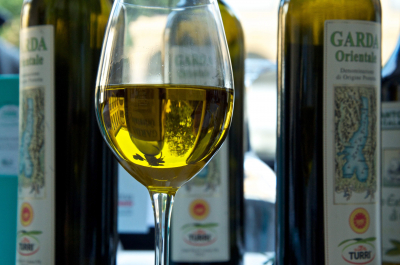The ABCs of extra virgin olive oil
Nobody was born an expert. Proper use, as condiment and during cooking, is crucial. Suggestions on the choice, the preservation of the quality, the risk of deterioration, the correct use. A short but fundamental handbook to avoid mistakes

The choice. In case of doubts at the shelf, remember that the only perfect fat on the market is the extra virgin olive oil of certified and guaranteed origin.
The preservation of the quality. Quality has a cost and requires effort, professionalism, and a bit of luck to find it. Hail, drought, frost and other unfavorable conditions can compromise the work of a year or even of a decade. Those who work to pursue quality deserve respect, and it is necessary to preserve quality, not just to choose it. Therefore, the work of producers does not go wasted if good preservation rules are observed.
The risk of deterioration. All fats are affected by a significant deterioration. The direct contact with air, light, and heat triggers oxidation. Even the best oils need the best care, although their better content in natural anti-oxidants makes them more resistant. The glass of bottles must be dark and bottles must be well closed after use. At the restaurant, ask for sealed bottled, better if individually packaged, but avoid cruets.
The appropriate use. Proper use of extra virgin olive oil, as condiment and during cooking, is crucial. Also because the wealth of nutrients and in antioxidants can never be lost. It would be a waste useless.
The right match. The quality of an extra virgin oil are better exploited if the oil is used in function of its sensorial profile. The aromatic perception of an oil can be intense, medium intense or light. The oil can be combined with the different structural characteristics of food according to their profile.
How to recognize a quality extra virgin olive oil? The quality has to be discovered by tasting, both smells and flavors. The smell of a quality product is clean and fresh, and our nose can detect the most diverse notes, from herbs to vegetables to flowers, such as apple, artichoke, almond, nut, pine nut, and more. The taste has to reveal fluidity and balance between bitter and hot. An oil must not present any unpleasant smell or flavor.
To be ready. Tasting schools offer a useful chance to learn how to judge the sensorial profile of an extra virgin olive oil. There are courses for professionals but also for amateurs who want to acquire the base knowledge. Either way, it is important to keep up to date with the several books on the topic.
Photo by Olio Officina
To comment you have to register
If you're already registered you can click here to access your account
or click here to create a new account


Comment this news